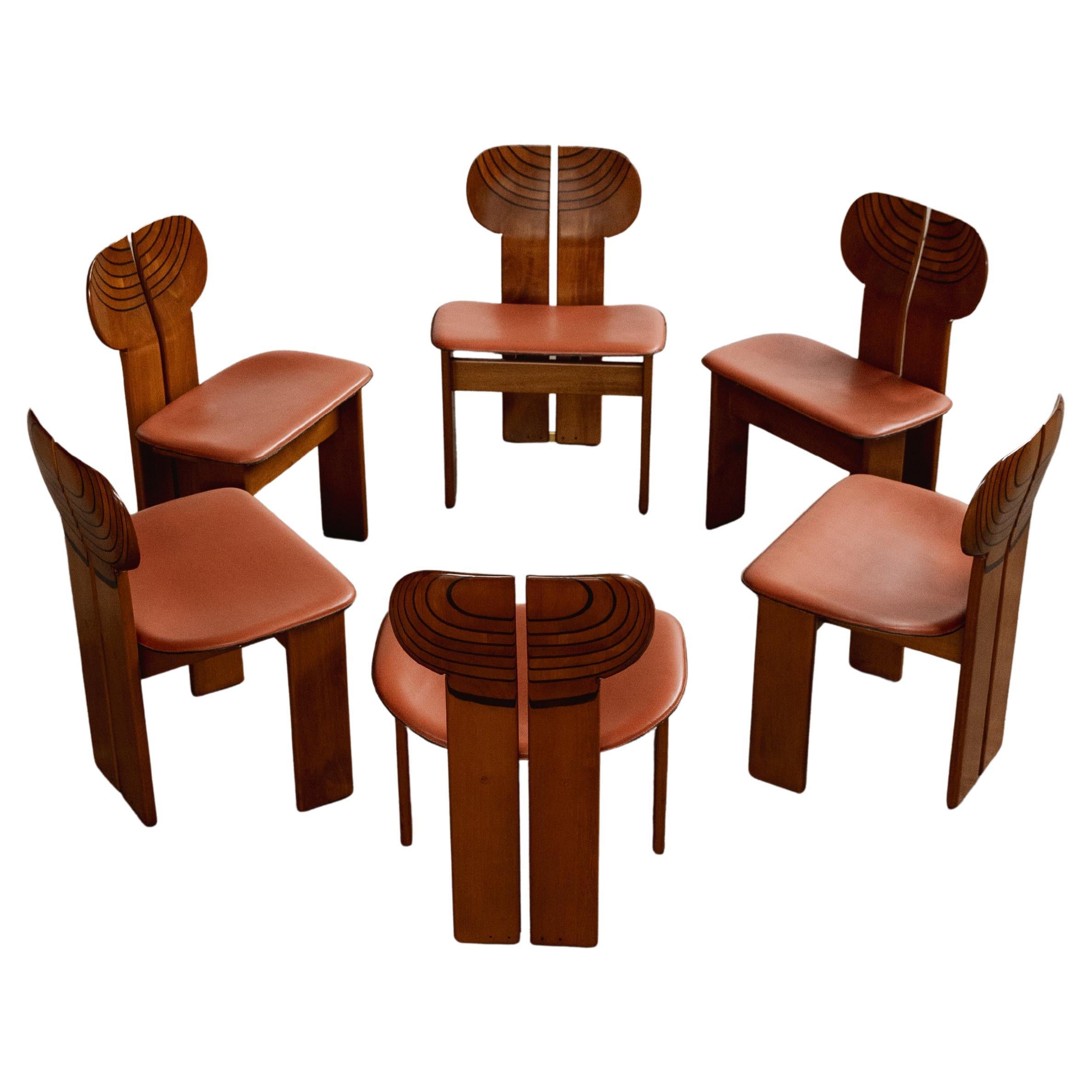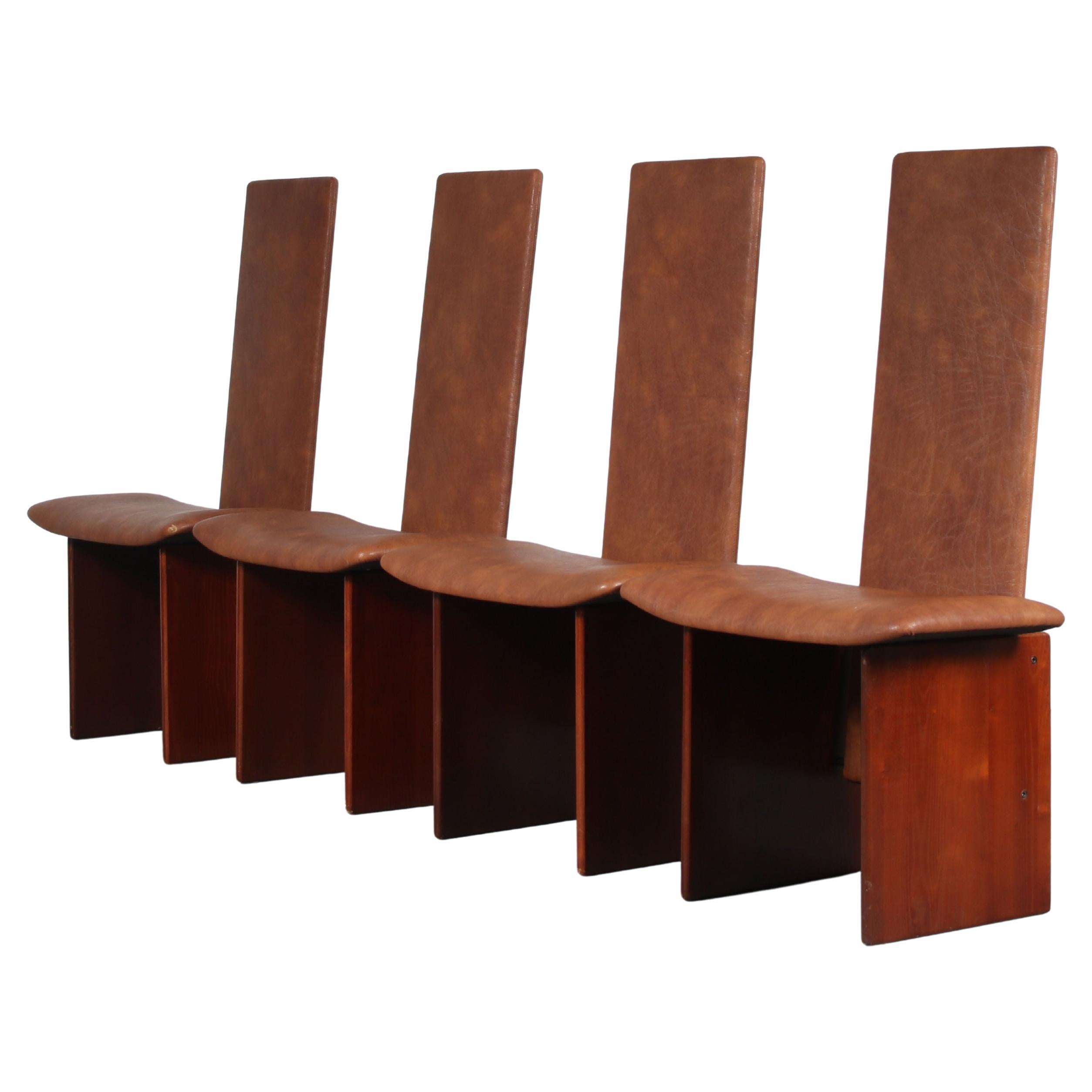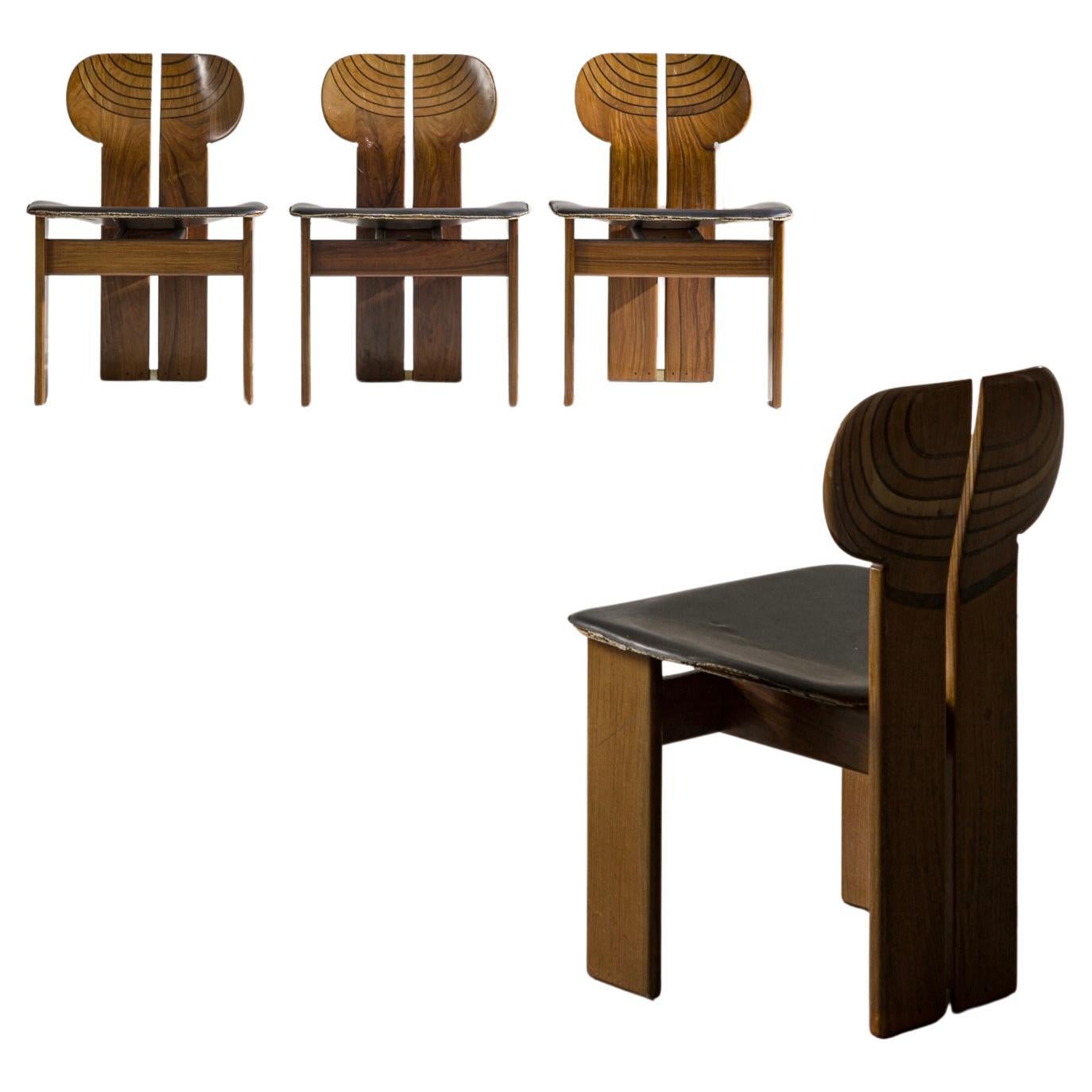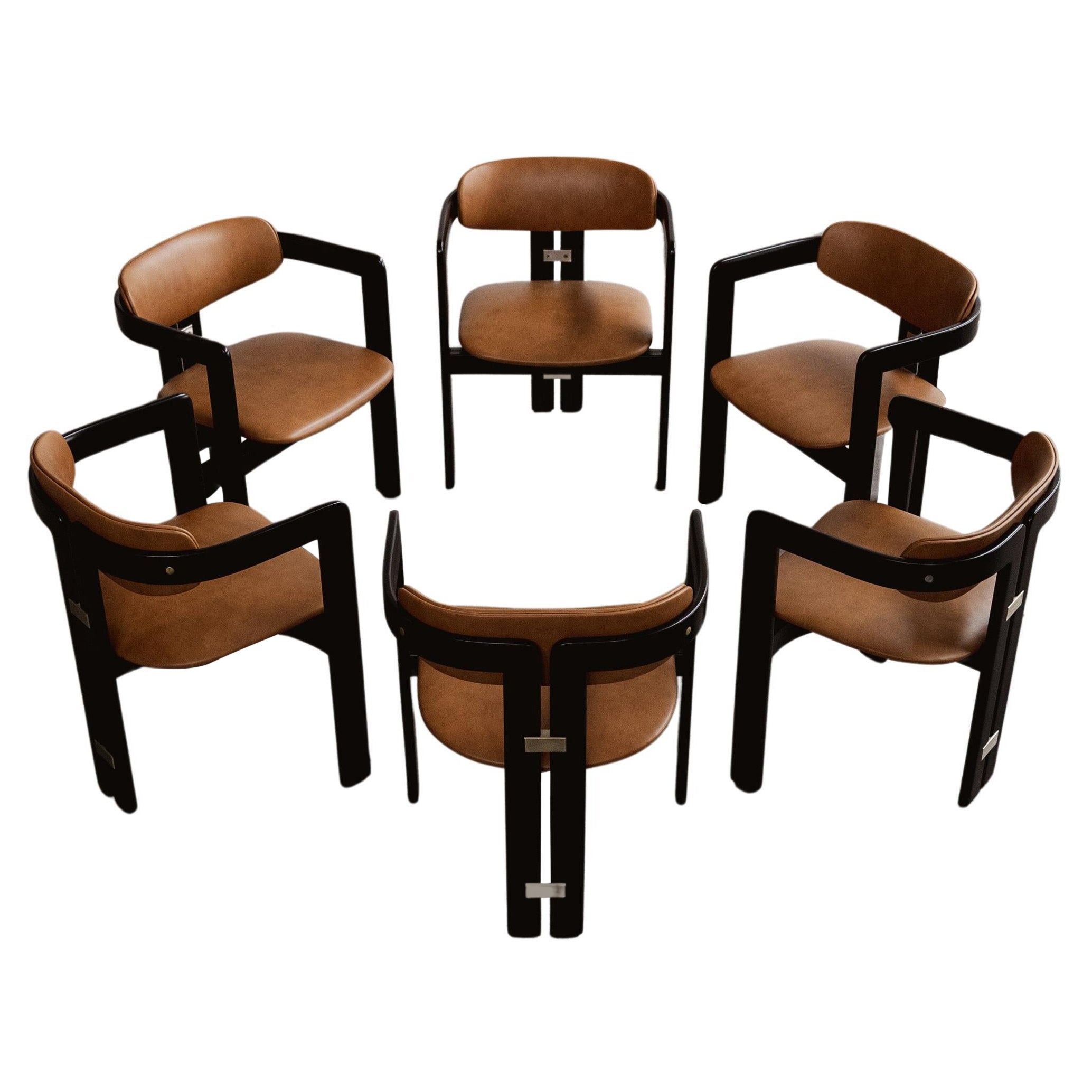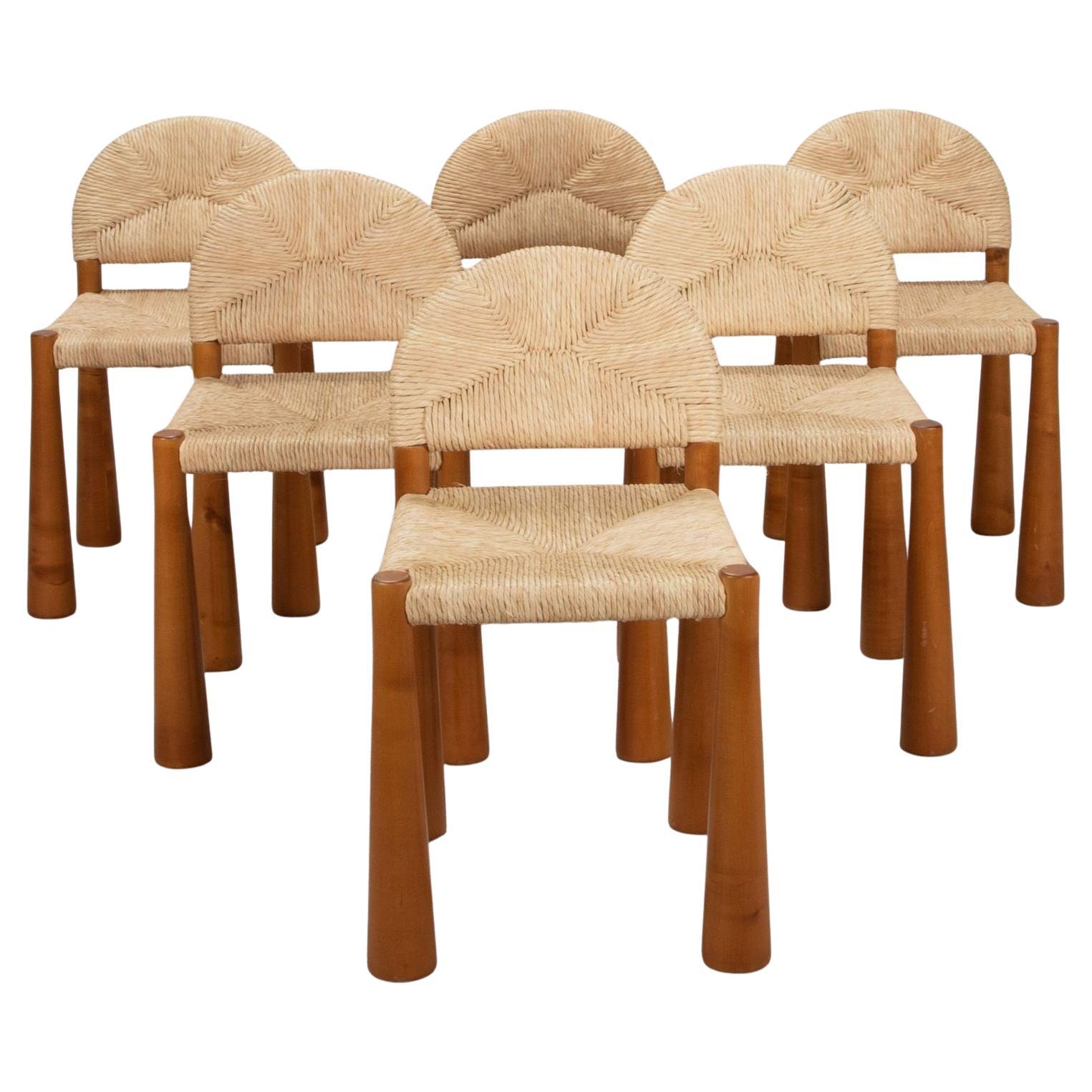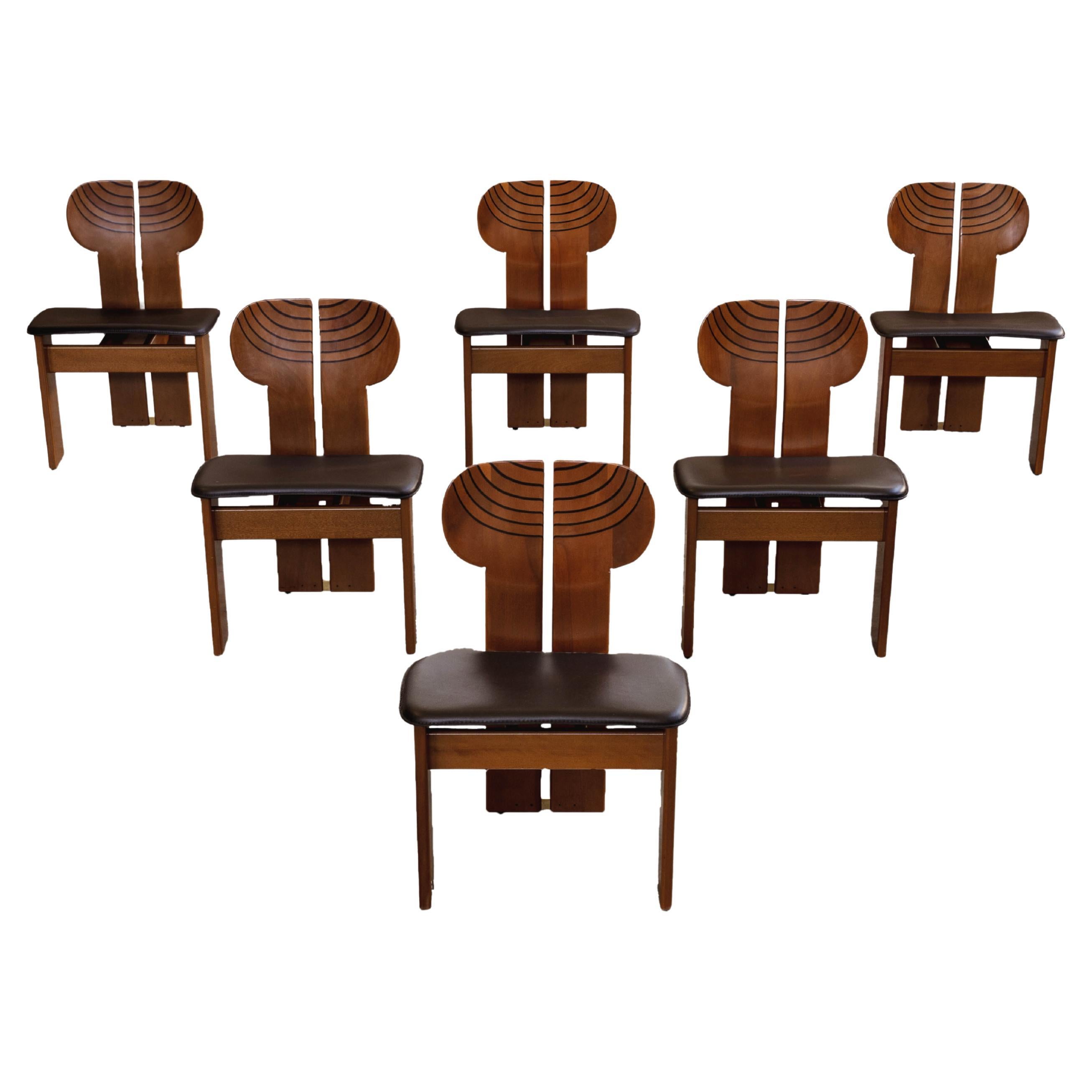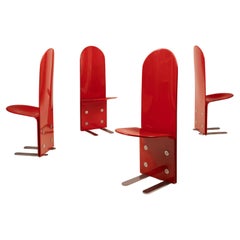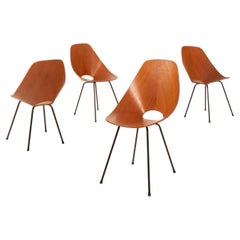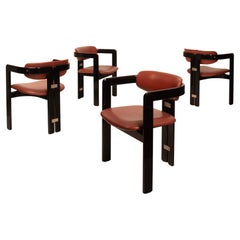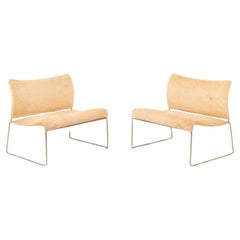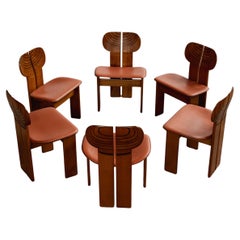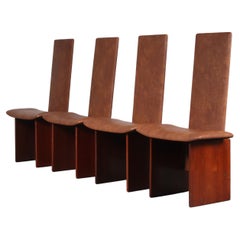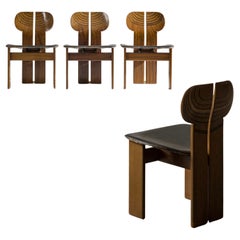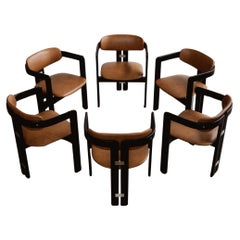Set of six “Kinu” chairs designed by Motomi Kawakami for Arflex, Italy, 1983
Informazioni sull’articolo
- Creatore:Motomi Kawakami (Designer),Arflex (Produttore)
- Dimensioni:Altezza: 86 cm (33,86 in)Larghezza: 54 cm (21,26 in)Profondità: 48 cm (18,9 in)
- Venduto come:Set di 6
- Materiali e tecniche:
- Luogo di origine:
- Periodo:1980-1989
- Data di produzione:1983
- Condizioni:Usura compatibile con l’età e l’utilizzo.
- Località del venditore:Conversano, IT
- Numero di riferimento:1stDibs: LU8395246736252
Arflex
Dai suoi inizi poco ortodossi, il produttore italiano Arflex è cresciuto fino a diventare uno dei leader del design di mobili del XX secolo. I suoi mobili sono diventati famosi per l'integrazione di nuovi materiali e per il loro fascino audace, e oggi una varietà di sedie vintage, divani e tavoli sono emblemi del modernismo di metà secolo.
Arflex è stata fondata a Milano nel 1947 dai dipendenti di Pirelli Carlo Barassi, Pio Reggiani, Renato Teani e Aldo Bai. Barassi, laureato al Politecnico di Milano e ingegnere visionario presso l'azienda italiana di pneumatici, ha esplorato tecnologie innovative e nuovi usi dei materiali sintetici nei prodotti domestici (per Kartell ha sviluppato un portasci per automobili). I quattro fondatori hanno collaborato con un giovane architetto di nome Marco Zanuso, che desiderava creare mobili con l'applicazione di materiali innovativi come il nastro elastico e il poliuretano espanso.
Uno dei pezzi inaugurali di Arflex è stata la poltrona Lady di Zanuso, una seduta realizzata in poliuretano espanso che è stata prodotta in pezzi e assemblata alla fine del processo di produzione. Ha vinto la medaglia d'oro alla Triennale di Milano del 1951 . Un paio di anni dopo, Arflex ha collaborato con Studio BBPR per creare le sedie Elettra e Neptunia dall'aspetto office-chic. La fiorente azienda di mobili si fece rapidamente una reputazione per i suoi prodotti irresistibili e per aver attirato e collaborato con designer emergenti, come Roberto Menghi, che creò Hall, una lussuosa linea di sedute che si guadagnò il Compasso d'Oro - Menzione d'Onore nel 1959.
Negli anni '60, Arflex continuò a promuovere l'uso di materiali nuovi e all'avanguardia. Tra i design più famosi di questo decennio ci sono Carlo Bartoli'la poltrona Gaia in fibra di vetro e resina poliestere e Cini Boer'Bobo Relax lounger, una delle prime sedute della storia realizzate in poliuretano espanso (non ha una struttura interna). Boer, un pioniere del design di mobili in Italia, ha anche creato il divano Strips per il marchio nel 1972. Parte di un sistema di sedute modulari, il divano Strips è diventato un'icona Arflex ed è stato premiato con il Compasso d'Oro nel 1979.
Arflex continua a collaborare con designer innovativi ancora oggi. Tra le collaborazioni più recenti c'è quella con lo studio di design svedese Claesson Koivisto Rune. Le leggendarie creazioni dell'azienda sono esposte anche nei musei di tutto il mondo. La sedia Lady, ad esempio, è nella collezione permanente del Museum of Modern Art di New York.
Su 1stDibs puoi trovare una collezione di sedie lounge vintage Arflex , poltrone , tavolini e altri mobili.
- SpedizioneRecupero del preventivo…Spedizione da: Conversano, Italia
- Politica di reso
Altro da questo venditore
Mostra tuttoVintage, 1970s, Italian, Minimalismo, Sedie per sala da pranzo
Metallo
Vintage, 1950s, Italian, Mid-Century moderno, Sedie per sala da pranzo
Metallo
Vintage, 1960s, Italian, Sedie per sala da pranzo
Pelle animale, Frassino
Vintage, 1970s, Italian, Poltrone
Acciaio
Vintage, 1970s, French, Hollywood Regency, Sedie per sala da pranzo
Ottone, Acciaio
Vintage, 1970s, Italian, Sedie per sala da pranzo
Ottone
Ti potrebbe interessare anche
Vintage, Anni 1970, Italiano, Mid-Century moderno, Sedie per sala da pranzo
Pelle, Noce
Vintage, Anni 1980, Italiano, Sedie per sala da pranzo
Pelle, Legno
Vintage, Anni 1970, Italiano, Mid-Century moderno, Sedie per sala da pranzo
Pelle, Noce
Vintage, Anni 1960, Italiano, Mid-Century moderno, Sedie per sala da pranzo
Pelle, Legno
Metà XX secolo, Italiano, Mid-Century moderno, Sedie per sala da pranzo
Rattan, Legno
Vintage, Anni 1970, Italiano, Mid-Century moderno, Sedie per sala da pranzo
Pelle, Noce
